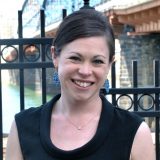Did you know there’s an Arab art museum in Israel, right outside of Haifa in a small town called Umm al-Fahm? Umm al-Fahm is the third-largest Arab city in Israel and since its founding in 1996, the Umm al-Fahm Art Gallery served as an important space to share the beauty and stories of this Arab Israeli community, building a reputation for the area as a center of arts and creativity.
Now, in 2024, the gallery has newly become the only Arab art museum in Israel, a space welcoming audiences from across Israel and the globe to hear stories of what it means to be Arab Israeli.
This May, we have the great pleasure of experiencing a once-in-a-lifetime conversation between museum founder, artist Said abu Shakra, and Peggy Fogelman, director of the Isabella Stewart Gardner Museum. Peggy grew up in a religious Jewish household, which she left to enter into the world of art. In this conversation, she and Said will talk about what it means to be leaders of institutions that are identity museums with strong founding principles, and what it means to use those works to facilitate bridge-building and dialogue.
- At Umm al-Fahm, Said has focused on shows that illustrate the community, often with an eye toward women’s issues—a topic of specific importance to him as a father of five and a devoted husband to his wife, who is not only a practicing Muslim, but a teacher and an activist herself. His focus on women’s issues seeks to highlight the everyday realities and the more intimate, human side of Arab life outside the political realm, emphasizing how social change can be inspired through people’s hearts, families, and minds.
This season, Umm al-Fahm is hosting a show by Boston-based Israeli American artist Caron Tabb in collaboration with Umm al-Fahm artist Nahawand Jbaren. The exhibition, “Memory Patches,” is a meeting between Tabb and Jbaren, artists who grew up in different backgrounds—generation, nationality, culture, and land. Their acquaintance began about two years ago, leading to a joint exhibition that fosters intercultural dialogue on the themes of memory, identity, family, and femininity. Through the mediums of knitting, stitching, and patchwork, they weave life and continue family traditions, preserving intergenerational knowledge passed down from their mothers and especially their grandmothers.
The exhibition is accompanied by a film shot in Khubbayza, the village where Jbaren’s ancestors lived. The film captures a dialogue between the artists about the meaning of creation, place, and memory, and explores the fusion of art, craft, and biography.
“Over the last few years I have witnessed first-hand Said’s dedication to dialogue and deep commitment to a shared society in Israel. He brings hope wherever he goes, and it’s a privilege to have him come to Boston,” Tabb says.
You can meet Said on Wednesday, May 14, at the Vilna Shul, in conversation with Isabella Stewart Gardner Museum director Peggy Fogelman, discussing the power of art for bridge-building. Get your tickets now to be inspired.
Never miss the best stories and events! Get JewishBoston This Week.
This post has been contributed by a third party. The opinions, facts and any media content are presented solely by the author, and JewishBoston assumes no responsibility for them. Want to add your voice to the conversation? Publish your own post here.
MORE




